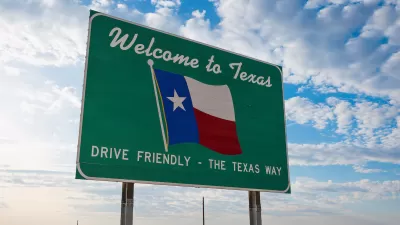With billions in new federal funding set to benefit state infrastructure projects, advocates for sustainable transportation call on state leaders to focus resources on public transit, pedestrian, and cycling improvements.

"The recently signed Infrastructure Investment and Jobs Act introduces an opportunity to rethink the structure of America’s cities. But most of the money in the infrastructure bill is designated for highway projects, even though nearly 1.2 million Wisconsinites do not drive, roughly a fifth of the population," writes Erik Pfantz in Madison Commons.
Gregg May, transportation policy director for 1000 Friends of Wisconsin, agrees. "We have almost no state funding for walking and biking. We fund transit 10% less than we did in 2006 when adjusted for inflation and it’s created a system that is really inequitable." Meanwhile, May argues, "[The] cost of car ownership is preventing a lot of people from getting jobs and the lack of transit access is harming our economic development." May points to workers who suffer long, inconsistent commutes and employers who can't find enough workers due to a lack of reliable transportation in the region.
Activists like May believe the City of Madison's recent efforts to address Vision Zero goals and improve its public transit infrastructure, if combined with new federal funding and investment and focused on equitable transportation for all residents and transportation modes, "could enable a serious transformation of the Madison area’s transportation system."
FULL STORY: Infrastructure bill funds continue to favor cars, but not everyone drives

Planetizen Federal Action Tracker
A weekly monitor of how Trump’s orders and actions are impacting planners and planning in America.

San Francisco's School District Spent $105M To Build Affordable Housing for Teachers — And That's Just the Beginning
SFUSD joins a growing list of school districts using their land holdings to address housing affordability challenges faced by their own employees.

The Tiny, Adorable $7,000 Car Turning Japan Onto EVs
The single seat Mibot charges from a regular plug as quickly as an iPad, and is about half the price of an average EV.

Trump Approves Futuristic Automated Texas-Mexico Cargo Corridor
The project could remove tens of thousands of commercial trucks from roadways.

Austin's First Single Stair Apartment Building is Officially Underway
Eliminating the requirement for two staircases in multi-story residential buildings lets developers use smaller lots and more flexible designs to create denser housing.

Atlanta Bus System Redesign Will Nearly Triple Access
MARTA's Next Gen Bus Network will retool over 100 bus routes, expand frequent service.
Urban Design for Planners 1: Software Tools
This six-course series explores essential urban design concepts using open source software and equips planners with the tools they need to participate fully in the urban design process.
Planning for Universal Design
Learn the tools for implementing Universal Design in planning regulations.
Smith Gee Studio
City of Charlotte
City of Camden Redevelopment Agency
City of Astoria
Transportation Research & Education Center (TREC) at Portland State University
US High Speed Rail Association
City of Camden Redevelopment Agency
Municipality of Princeton (NJ)





























